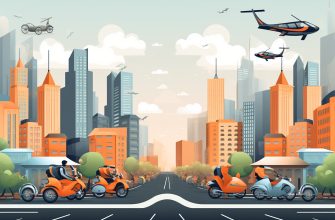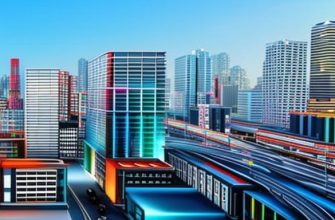Are you tired of living in a city that wastes energy and resources? The good news is that many cities worldwide are starting to adopt smart city technologies to become more efficient and sustainable.
In this article, we’ll explore the history of smart city technologies, their benefits, and some examples of cities that have successfully implemented them.
The History of Smart City Technologies
Smart city technologies have been around for several decades, but they have become more prevalent in recent years as cities look for ways to become more sustainable and efficient. These technologies include:
- Smart grid systems that monitor and adjust energy usage in real time.
- Automated waste management systems that optimize collection and disposal.
- Intelligent transportation systems that reduce traffic congestion and emissions.
- Digital citizen services that improve communication between residents and city officials.
The Benefits of Smart City Technologies
Smart city technologies offer many benefits to cities and their residents, including:
- Reduced energy consumption: Smart grid systems can help to reduce energy waste by monitoring and adjusting energy usage in real-time.
- Improved waste management: Automated waste management systems can optimize collection and disposal, reducing waste in landfills.
- Better transportation: Intelligent transportation systems can reduce traffic congestion and emissions, making getting around easier.
- Enhanced communication: Digital citizen services can improve communication between residents and city officials, allowing for more efficient problem-solving and service delivery.
Examples of Successful Smart City Technologies
Many cities around the world have successfully implemented smart city technologies, including:
- Barcelona: The city has implemented a smart lighting system that adjusts the brightness of streetlights based on pedestrian and vehicle traffic.
- Singapore: The city has implemented a comprehensive smart transportation system with real-time traffic monitoring and automated toll collection.
- Copenhagen: The city has implemented a smart waste management system that uses sensors to optimize collection and reduce waste.
Overcoming Challenges
While smart city technologies offer many benefits, they can also present challenges for cities and their residents. Some common challenges include:
- Cost: Implementing these technologies can be expensive, and cities may need to find creative ways to fund these projects.
- Privacy: Some people may be concerned about the collection and use of data associated with smart city technologies.
- Education: Residents may need to be educated on how to use these technologies and their benefits.
However, these challenges can be overcome with careful planning, public support, and partnerships with private organizations.
Frequently Asked Questions
Q: Are smart city technologies only for large cities?
A: No, cities of all sizes can benefit from these technologies.
Q: Do smart city technologies impact privacy?
A: It depends on the specific technology and how it is implemented. However, many cities have implemented policies to protect privacy.
Q: Can smart city technologies save money?
A: Yes, by reducing energy waste, optimizing waste management, and improving transportation, these technologies can save cities and residents money.
Conclusion
Smart city technologies offer a way for cities to become more efficient, sustainable, and livable. While they can present challenges, their benefits make them a worthwhile investment for cities looking to improve energy use and waste management.
Whether you’re a resident, a business owner, or a city official, these technologies can help to create a more vibrant and sustainable community.








